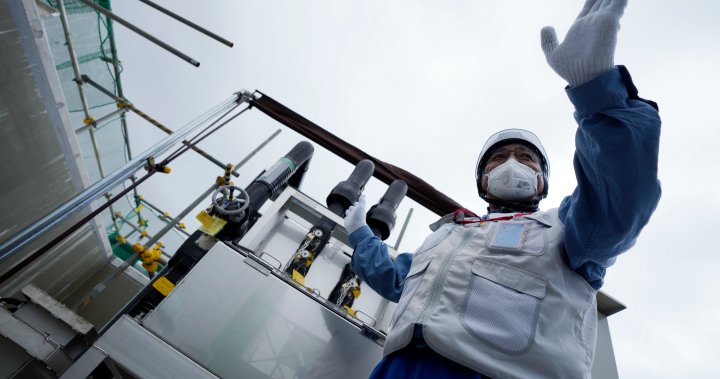Japan said on Monday it had received many “extremely regrettable” harassment phone calls, likely from China, after the release of treated radioactive water from the Fukushima nuclear power plant into the Pacific.
The Chinese embassy in Tokyo said it too had been receiving nuisance calls, from Japan.
Japan started the water discharge on Thursday in a key step towards decommissioning the Fukushima plant, which suffered triple meltdowns after being hit by a tsunami in 2011 in the world’s worst nuclear plant disaster since Chernobyl 25 years earlier.
“A lot of harassment phone calls believed to be originating from China are occurring in Japan … These developments are extremely regrettable and we are concerned,” Chief Cabinet Secretary Hirokazu Matsuno, the chief government spokesman, told a regular news conference.

Such calls prompted vice foreign minister Masataka Okano to summon the Chinese ambassador, Japan’s foreign ministry said.
A spokesman for China’s foreign ministry said it was not aware of the matter when asked about the harassment accusations at a regular briefing on Monday.
But the Chinese embassy in Tokyo released a statement saying it had lodged stern representations with Japan about the Chinese embassy and consulates in Japan receiving “a large number of nuisance calls from Japan”.
The calls have caused “serious interference in the normal operation of the embassy and consulates”, ambassador Wu Jianghao said, according to an embassy statement.

In a statement, Japan’s foreign ministry said the harassment calls were also occurring at Japanese facilities in China, and urged the government to ensure the safety of Japanese citizens.
Prime Minister Fumio Kishida said the government had “strongly” requested Beijing to urge its citizens to act “calmly and responsibly” after incidents of stone-throwing were also reported at a Japanese school and embassy.
Fukushima city hall started receiving calls with the China country code +86 on Thursday and the number of such calls exceeded 200 the following day, flooding phone lines and disrupting city employees’ ordinary work, a city official said.
On the same day, elementary and junior high schools in the city, 60 km (38 miles) northwest of the crippled plant, received 65 similar calls, he said.

He said one caller made a comment to the effect of, “Why are you releasing tainted water into the Pacific Ocean, which is a sea for everyone?”.
Other municipalities, hotels and restaurants have also been getting such calls, domestic media said.
An executive at a Japanese restaurant chain operator said branches in central Tokyo were receiving frequent calls from people speaking Chinese from an +86 number. The company had reported the incidents to police, the executive said, speaking on condition of anonymity fearing even more harassment.
In China, a rock was thrown at the Japanese school in the coastal city of Qingdao on Thursday, according to the Consulate-General of Japan in the city.
When asked about the incident in Qingdao and the harassment calls, Chinese foreign ministry spokesman Wang Wenbin defended China’s record of keeping foreigners safe.
“China always safeguards the safety and lawful rights and interests of foreign nationals in China in accordance with law,” Wang said.
Fukushima plant operator Tokyo Electric Power (Tepco) has been filtering the contaminated water to remove isotopes, leaving only tritium, a radioactive isotope of hydrogen that is hard to separate.
China said Japan had not proved that the water would be safe and issued a blanket ban on all aquatic products from Japan.




